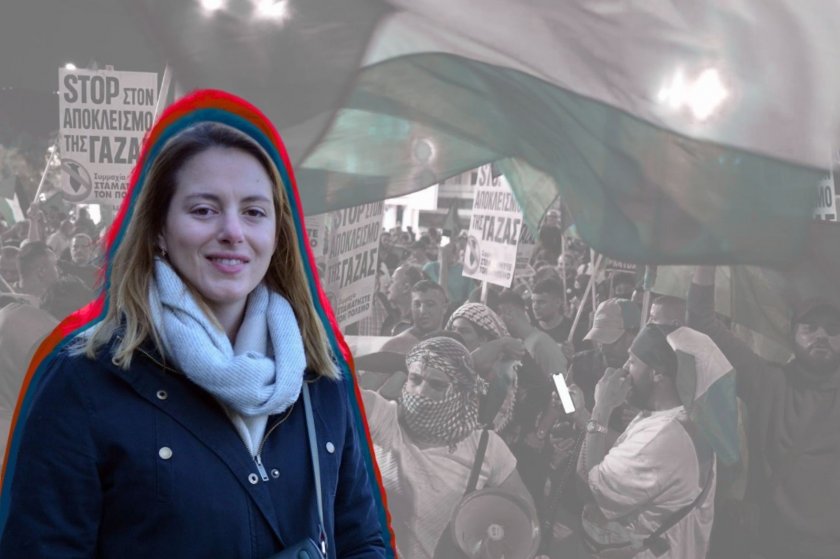The defence of Selahattin Demirtaş and the role of Abdullah Öcalan!

Yusuf Karadaş

Without a doubt, Selahattin Demirtaş has been one of the most prominent and effective names of Kurdish and national politics. Understanding statements and actions of Demirtaş, the movement he represents, and the actions of those oppose him are important not only to better grasp history but also to have the correct outlook for the future. Following the statement, prior to the elections on 7 June 2015, by President Erdoğan that “there is no table [for discussions]”, the course veered back towards conflict and a period targeting the elimination of Kurdish politics. Following the attempted coup of 15 July and the subsequent OHAL [State of Emergency] introduced in the name of fighting against FETÖ [Fethullahist Terror Organisation], this policy of elimination took a new dimension; 12 MPs, including co-chairs of HDP Selahattin Demirtaş and Figen Yüksekdağ were detained; over one hundred mayors were also detained, replaced by government appointed administrators.
Demirtaş - in detention for 15 months - have been brought to a court in Sincan, Ankara last week. In his statement, he clearly demonstrates how the government exploits one of the biggest issues in the country, the Kurdish issue, to serve its own interests. In any democratic country, the government would have been held to account for its attempts, which amount to intervention in elections. In contrast, our government continues to play dumb, as if Demirtaş was talking about events taking place in another country. Furthermore, the statement by Demirtaş is used to blame the Kurdish movement, even in opposition circles; they are used as a basis to claim that Öcalan is in collaboration with the government.
Demirtaş raises three important points in his statement. The first is when BDP [Unity and Democracy party] took the decision to ‘boycott’ the referendum in 2010; a minister had produced a document seemingly handwritten by Öcalan to pressure them to change their decision to vote ‘Yes’ [to changes in the constitution]. The second is presidential candidacy in elections in 2014; the delegation to İmralı, in discussions with Öcalan, stated that he was extremely disappointed with the candidacy and said “why are you both involved in discussions and put forward a candidate?” Finally, following the decision by HDP to enter the 7 June 2015 elections as a party; the government’s İmralı delegation claimed that “this is against the ‘peace process’. 20-25 MPs are more then enough for you; you can enter [the Parliament] as independents.”
In 2010, government delegations and the PKK were involved in Oslo discussions. The following events took place during a period when government delegations were meeting with Öcalan in İmralı. It is clear that the government had attempted to use discussions with Kurds to force them to support its line of politics. It is also clear that these attempts were unsuccessful; on all three occasions, the Kurdish movement did not abandon its democratic struggle when faced with repression.
On the matter of Öcalan… Many individuals and circles, including FETÖ member Emre Uslu, the 10th President of the republics Ahmet Necdet Sezer and [TV anchor] Can Dündar, interpret the statement by Demirtaş as an indication of Öcalan’s collusion with the government. Moreover, some even interpreted Demirtaş’s words regarding the referendum in 2010 as if he was referring to the [presidential] referendum of 2017. The Good Party chairwoman, Meral Akşener, went as far as making a prediction that in the event of the Presidential elections in 2019 going into a second round, HDP will support Erdoğan. However, negotiations and collaboration are different processes. Negotiation is a process where the sides in a dispute come together to resolve an issue. Collaboration is the union of forces with common interests and aims. At a time where it is subjected to a historically most comprehensive attack, the claim that the Kurdish movement is in collaboration with the government mocks peoples’ intelligence, to put it lightly.
While people claim that he is in collaboration with the government, Öcalan has been in isolation for three years; since April 2015, he has only seen his brother, on one occasion on 11 September 2016. This isolation prevents Öcalan, seen as an important actor in the national and regional (Middle Eastern) landscape, from playing his political role. If he was collaborating with the government, we would certainly see a different picture. It is important to remember that Yalçın Akdoğan, the then deputy Prime Minister in charge of the discussions, had claimed that Öcalan was trying to fashion a “strategic role” for himself through Rojava; the ‘peace process’ was then terminated following the collapse of the plan regarding Rojava; the failure of IS to take control of Kobane. The government could see clearly that Kurds having an established status in Rojava would prevent it from forcing Kurds at home to a domestic solution of its own design. Therefore, we can certainly criticise the policies of Öcalan and the Kurds but one thing that cannot be claimed is a collaboration with the government.
The aim of those circles that claim to be in opposition to the government, but also claiming that the statement by Demirtaş points to a collaboration with the government on the part of the Kurdish movement and Öcalan is very clear. They are trying to justify their chauvinist stand in regards to the Kurdish issue and their distancing themselves from the Kurds in the struggle against the one-man regime. In contrast, the statement by Demirtaş clearly demonstrates that the government sees the Kurdish movement as a major stumbling block in the way of the one-man regime; this is the reason for the attempts to eliminate it. It should be known that to persistently ignore this fact, and to keep the Kurdish movement at arms length both in the domestic struggle for democracy and international struggle for peace will serve mostly the interests of the government.
Forwarding to the next article...
10 seconds remaining





Follow Evrensel